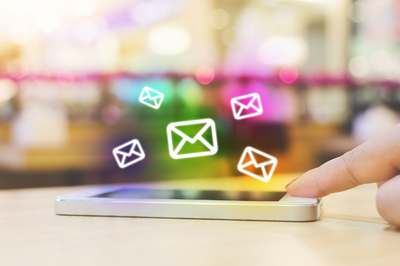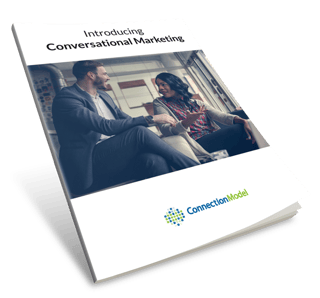 With any marketing strategy, it's important to make sure you're implementing every process and tactic properly so that you don't make any mistakes. Email marketing is no different. Because precision matters when it comes to who is on your email list, who you're sending emails to, and even what your subject line and email content look like, you can't afford basic email marketing mistakes.
With any marketing strategy, it's important to make sure you're implementing every process and tactic properly so that you don't make any mistakes. Email marketing is no different. Because precision matters when it comes to who is on your email list, who you're sending emails to, and even what your subject line and email content look like, you can't afford basic email marketing mistakes.
Learn more about a few common email marketing mistakes many marketers and business owners are making and how you can avoid them.
1. Bad Subject Lines
Your subject line matters. Nearly half of all email recipients open their emails based on the subject line alone. So starting your email with a weak subject line is actually a huge mistake.
Instead, you want to put just as much emphasis on your subject line as you do on the content within the email. This is where A/B testing can really come in handy. Try out two or three different subject lines on a test portion of your audience and see which one generates the most opens or clicks.
A few other subject line tips include:
- Use personalization. It compels someone to open an email if they see their name within the subject line.
- Keep it short, sweet, and to the point.
- Don't trick your audience into opening your email; be sincere and stay focused on the actual content.
2. Unleveraged Message Previews
Too many marketers and business owners fail to take advantage of the message preview feature provided in email marketing software platforms. This message preview allows users to glimpse a small preview of what to expect inside (as a continuation or so of your email subject line) and can be a great way to offer a teaser.
For example, your email subject line might talk about the content inside, while your message preview might tease a 20% off discount code. In another vein, your message preview can also be used as a tagline for your email content. Think of it like a news story or online article; your email subject is your headline and your message preview is the summary text that falls directly beneath it, letting readers know if they want to continue reading.
The message preview area is doing you a favor. There's only so much information you can fit into your subject line. You know that your audience needs your email content. The message preview area just gives you more space to make sure that your audience knows this as well.
 3. Non-human Email Sender
3. Non-human Email Sender
So many companies send emails from hello@company.com, contact@company.com, or even do-not-reply@company.com. The sender name is simply Company Name. This is impersonal and unless your recipient really loves your company, they're not going to be very compelled to open that email.
A better way of doing this is to allow your employees to personalize the email sender section. If your email marketer's name is Madison, have her send emails directly from her email address (this helps increase the number of people that directly reply to your emails, opening up a direct customer conversation) with "Madison with Company Name" as the sender name.
Allowing your employees to have a voice at your company helps with customer trust as well as employee morale. Give this strategy a try and see how well it improves communication and email opens/clicks.
4. Poor Email Design
If you're not a graphic designer, don't pretend that you are, especially when it comes to your email design. If you don't have a lot of resources to create your email, there's nothing wrong with sending an informational email with text and links or an email with product photos.
Your best bet is to hire a designer that helps focus on email marketing design. This way, you're only sending your best to your email list. You should be putting much more emphasis on that audience than, say, your social media audience. This is because an email subscribe is much more powerful than a social media follow. That audience is much more qualified than those that just follow your page on Facebook.
5. Weak Call to Action
Every single email you send out should have a clear call to action at the end. What is the purpose of this email? Is it meant to sell clothes? Is it meant to generate clicks to a recent blog post? Is it meant to promote a new service offering?
Depending on the objective of your email, be sure to always end with a blatant "next steps" so your recipient knows exactly what to do after reading. Not every single reader is going to take action, but letting people know what you want them to do next will increase the number of people who actually do it.
Give them a little nudge, include a link directing them to the next course of action, and conclude your email. It really is that simple, but so many people still fail to include a call to action within their emails.
Are you ready to stop making these five email marketing mistakes and start converting your email list into paying clients? Contact Connection Model today to learn more about how we can help you improve your email campaigns.
Written By: Doug Milnor


